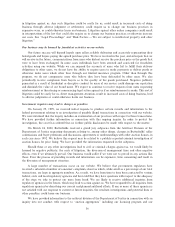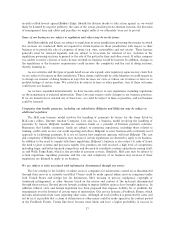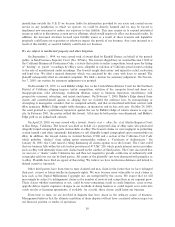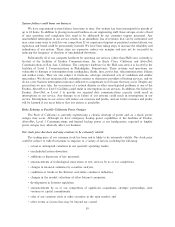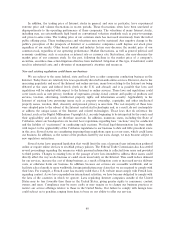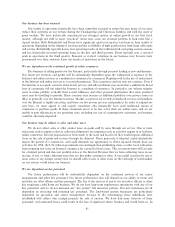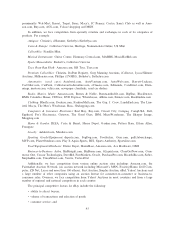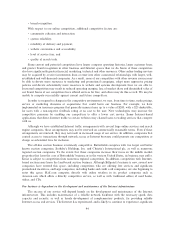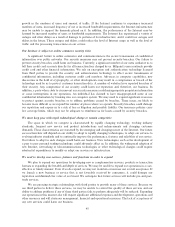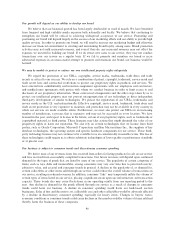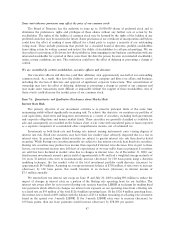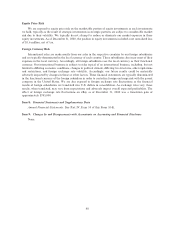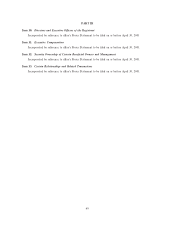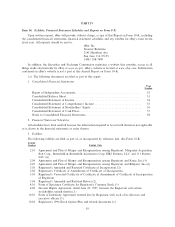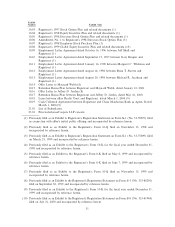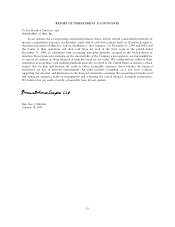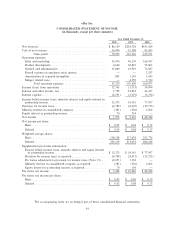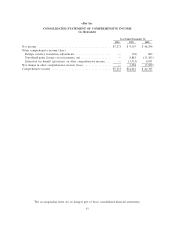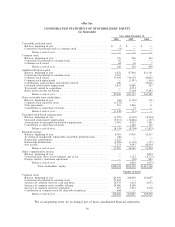eBay 2000 Annual Report Download - page 51
Download and view the complete annual report
Please find page 51 of the 2000 eBay annual report below. You can navigate through the pages in the report by either clicking on the pages listed below, or by using the keyword search tool below to find specific information within the annual report.Our growth will depend on our ability to develop our brand
We believe that our historical growth has been largely attributable to word of mouth. We have beneÑted
from frequent and high visibility media exposure both nationally and locally. We believe that continuing to
strengthen our brand will be critical to achieving widespread acceptance of our service. Promoting and
positioning our brand will depend largely on the success of our marketing eÅorts and our ability to provide high
quality services. In order to promote our brand, we will need to increase our marketing budget and otherwise
increase our Ñnancial commitment to creating and maintaining brand loyalty among users. Brand promotion
activities may not yield increased revenues, and even if they do, any increased revenues may not oÅset the
expenses we incurred in building our brand. If we do attract new users to our service, they may not conduct
transactions over our service on a regular basis. If we fail to promote and maintain our brand or incur
substantial expenses in an unsuccessful attempt to promote and maintain our brand, our business would be
harmed.
We may be unable to protect or enforce our own intellectual property rights adequately
We regard the protection of our URLs, copyrights, service marks, trademarks, trade dress and trade
secrets as critical to our success. We rely on a combination of patent, copyright, trademark, service mark and
trade secret laws and contractual restrictions to protect our proprietary rights in products and services. We
have entered into conÑdentiality and invention assignment agreements with our employees and contractors,
and nondisclosure agreements with parties with whom we conduct business in order to limit access to and
disclosure of our proprietary information. These contractual arrangements and the other steps taken by us to
protect our intellectual property may not prevent misappropriation of our technology or deter independent
third-party development of similar technologies. We pursue the registration of our URLs, trademarks and
service marks in the U.S. and internationally. EÅective copyright, service mark, trademark, trade dress and
trade secret protection is very expensive to maintain, and protection may not be available in every country in
which our services are made available online. Furthermore, we must also protect our URLs in an increasing
number of jurisdictions, a process that is expensive and may not be successful in every location. We have
licensed in the past, and expect to license in the future, certain of our proprietary rights, such as trademarks or
copyrighted material, to third parties. These licensees may take actions that might diminish the value of our
proprietary rights or harm our reputation. We also rely on certain technologies that we license from third
parties, such as Oracle Corporation, Microsoft Corporation and Sun Microsystems Inc., the suppliers of key
database technologies, the operating system and speciÑc hardware components for our service. These third-
party technology licenses may not continue to be available to us on commercially reasonable terms. The loss of
these technologies could require us to obtain substitute technologies of lower quality or performance standards
or at greater cost.
Our business is subject to consumer trends and discretionary consumer spending
We derive most of our revenues from fees received from sellers for listing products for sale on our service
and fees received from successfully completed transactions. Our future revenues will depend upon continued
demand for the types of goods that are listed by users of our service. The popularity of certain categories of
items, such as toys, dolls and memorabilia, among consumers may vary over time due to perceived scarcity,
subjective value, and societal and consumer trends in general. A decline in the popularity of, or demand for,
certain collectibles or other items sold through our service could reduce the overall volume of transactions on
our service, resulting in reduced revenues. In addition, consumer ""fads'' may temporarily inÖate the volume of
certain types of items listed on our service, placing a signiÑcant strain upon our infrastructure and transaction
capacity. These trends also may cause Öuctuations in our operating results from one reporting period to the
next. Any decline in demand for the goods oÅered through our service as a result of changes in consumer
trends could harm our business. A decline in consumer spending would harm our land-based auction
businesses. Sales of Ñne and decorative art, collectable cars and other collectibles would be adversely aÅected
by a decline in discretionary consumer spending, especially for luxury items. Changes in buyers' tastes,
economic conditions or consumer trends could cause declines in the number or dollar volume of items sold and
thereby harm the business of these companies.
46


